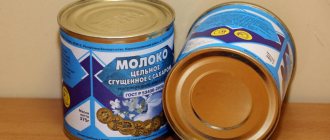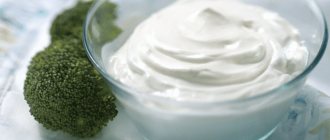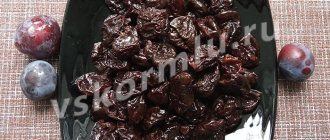The menu of a breastfeeding woman seems bland and monotonous. In fact, sometimes a strict diet is only required for the first time after childbirth, and modern cooking is so rich and saturated that a nursing mother can easily replace her favorite ingredients with healthy analogues. In addition, the topic of nutrition during breastfeeding is so relevant that it has become overgrown with a large number of myths about the usefulness of certain products. For example, one of the most controversial issues that mothers are interested in is whether coffee can be consumed while breastfeeding? Or is it better to limit ourselves to its substitutes?
Whether to drink coffee during breastfeeding or not is a controversial issue. Subject to certain rules, drinking coffee is not prohibited for a nursing mother.
Can I drink coffee while breastfeeding?
It is unlikely that a clear answer can be given to this question. Even doctors did not come to a consensus. Thus, the American Pediatric Association graciously allows nursing mothers to drink coffee. However, with one caveat: you should still take into account that caffeine can make the baby more restless and excitable. Many “our” doctors are more conservative and believe that it is better for women during lactation to refrain from drinking this drink.
A safe daily dose for a nursing mother is 200 mg of caffeine. However, it is better to stick to a much lower dosage. 100 ml of coffee can contain from 15 (decaffeinated drink) to 100 mg (espresso) of caffeine.
The final decision remains with the nursing mother herself. If the woman and baby do not experience any health problems, there are no special contraindications.
How is coffee beneficial for a nursing mother?
It is usually customary to talk about the dangers of coffee, forgetting about its advantages. But there are not so few of them. Let's look at the main benefits of coffee that are relevant for a nursing mother.
- Laxative effect. New mothers often suffer from constipation. The arsenal of tools that can be used to solve this problem is small in this case. Not every drug is suitable for a nursing mother. Regular consumption of coffee in small quantities will help you cope with constipation and avoid experimenting with other remedies.
- Diuretic effect. Breastfeeding women often experience swelling. Coffee will help normalize fluid circulation in the body.
- Help in the fight against depression, stress, bad mood. Postpartum depression in new mothers is far from a myth! And coffee is quite capable of helping to eliminate or at least reduce its symptoms. Studies have been conducted, the results of which have shown that women who drink coffee are less susceptible to stress and depression than “non-drinkers.” This is due to the chemical effect of caffeine on the brain: it reduces the ability to respond to stress. However, excessive indulgence in an invigorating drink (consuming more than 400 mg of caffeine per day), on the contrary, can contribute to the development of depression.
- Tonic effect. A new mother has so many things to do, it seems impossible to get everything done. In addition, the baby constantly requires attention. Where to get so much energy? A small cup of coffee will help you cheer up and start doing your daily tasks with renewed vigor.
- Migraine relief. Nursing mothers practically do not use pills, so problems arise when they need to quickly relieve a headache. And again a cup of coffee will come to the rescue, especially if you drink it as soon as you feel unwell. This method is not suitable for women with high blood pressure.
Want a drink with less caffeine? Don't cook, but brew coffee! Pour boiling water over the ground grains and let it brew for 5-10 minutes.
The effect of caffeine on the female body during lactation
Coffee is a drink without which many nursing mothers cannot imagine waking up. After all, household chores and child care have not been canceled, and sometimes waking up can be very difficult. So it seems that a mug of invigorating drink can bring you to your senses and give you strength. In addition, this product during lactation is slightly capable of raising blood pressure, which in some cases is useful for a tired mother. Invigorating coffee increases mental and physical activity.
It promotes weight loss as it contains caffeine, which helps speed up the calorie burning process.
But such a controversial product also has disadvantages, otherwise coffee would not be on the list of prohibited products under the Guards. Although this is a controversial point, because green tea with an even higher caffeine content is recommended for all nursing mothers, but coffee is not. The diuretic effect of coffee beans can be considered in two ways. On the one hand, there is always excess fluid in the female body, which is better to get rid of. On the other hand, constant consumption of coffee can lead to dehydration, which in itself leads to deterioration of the blood and the appearance of kidney stones. Consuming several cups in a row negatively affects the functioning of the heart, and not only in people who have problems with it. A large amount of strong coffee increases the heart rate and harms even a healthy person.
Harm of coffee for mother
When drinking this drink, a woman needs to take into account the following features:
- Coffee can cause dehydration. A lack of fluid in the body of a nursing mother is fraught with ailments and a decrease in breast milk production. Therefore, when drinking coffee, you need to drink more water. The optimal combination is: for one cup of coffee - one “extra” glass of water per day.
- Coffee helps remove calcium from the body. Most nursing mothers already have a “complicated relationship” with this element - it is often lacking. And coffee makes the problem worse. Therefore, when drinking an invigorating drink, it is necessary to include more fermented milk products in the diet or take additional calcium.
Harm and benefits of the drink during breastfeeding
Is it possible for nursing mothers of newborns to drink coffee and how will the baby feel if he receives “coffee” milk? This is a question that requires a specific answer:
- If the drink is consumed frequently, the child may become nervous.
- If the mother does not check whether the newborn tolerates the components included in the drink, this is fraught with allergies.
- Coffee drinks dehydrate the body as they affect water metabolism.
- Coffee promotes accelerated excretion of beneficial microelements, including calcium, which is necessary to strengthen the skeletal system.
We are not talking about one cup; such a dose will not cause serious consequences. But coffee in large quantities during breastfeeding will definitely cause the listed effects.
If you drink coffee after breastfeeding, the risk of negative consequences for the baby is reduced significantly.
Harm of coffee for a baby
These factors are also relevant for the baby: excess coffee in the mother’s diet can cause a lack of calcium and fluid in the baby’s body. In addition, the presence of caffeine in breast milk can affect the baby in the following ways:
- Anxiety, nervousness, tearfulness, sleep disturbances. Not all babies experience these symptoms. Many people tolerate the presence of caffeine in breast milk. However, it should be borne in mind that until the child is one year old, his body still poorly absorbs and eliminates caffeine and is able to accumulate it. Thus, if a mother drinks a lot and often of coffee, the baby may develop problems with the nervous system.
- Allergic reactions. Coffee is a serious allergen. Your child may develop redness or a rash on their skin.
- Stool disorder. A number of babies experience frequent and loose stools when caffeine enters their body.
- The emergence of addiction to coffee. Yes, even such a baby can become addicted to caffeine! The more often you drink an invigorating drink, the higher the risk of addiction in your child. It is better to drink coffee not every day, but at least once every 2-3 days.
After drinking coffee for the first time, monitor your baby’s well-being. You should completely avoid this drink if your baby has allergic reactions.
The right coffee for a nursing mother
Now you can buy not only grain and instant coffee, but also decaffeinated and even green! Which one is best for a nursing mother?
- Natural coffe. It does not contain synthetic additives and is not chemically processed. It doesn't really matter whether you buy it ground or grind the grains yourself.
- Instant coffee. Not the best choice for women during lactation. This coffee is made from inexpensive and not very high-quality raw materials: Robusta beans. They have 2 times more caffeine than Arabica. In addition, the taste of robusta coffee is not very pleasant: it, like the aroma, is improved with chemical additives.
- Green coffee. Many new mothers are trying to lose the pounds they have gained during pregnancy. And green coffee is often touted as a super-effective fat burner. In fact, this product is practically useless for weight loss. Its miraculous properties are solely the invention of marketers. In addition, green coffee has a disgusting taste. Its use will not cause harm, but there is no benefit from it either. Is it worth choking on a tasteless drink when you can drink aromatic coffee made from roasted beans?
- Decaffeinated coffee. Another example of misleading consumers. There is no such thing as completely decaffeinated coffee! Yes, the content of this substance in drinks of this kind is low. But here lies another danger: such coffee undergoes chemical processing, which does not add any beneficial qualities to it.
Experts agree that if you drink coffee during lactation, it should be exclusively natural, grain coffee. This way you will avoid an “overdose” of caffeine and be sure that the drink does not contain harmful chemical additives.
Truths and myths about coffee during lactation
There are many myths that say that drinking coffee while breastfeeding (BF) and during pregnancy is harmful.
Most often, doctors say that caffeine passes through internal barriers, penetrating into mother's milk. Because of this, the child sleeps restlessly and may suffer from allergies. Caffeine and other trace elements can penetrate into mother's milk, but this is not a reason to deny yourself the pleasure of enjoying a cup of aromatic drink.
Many are sure that instant coffee is not natural, so it will not have any effect on the baby. However, it is also made from real coffee beans, but its processing technology is different.
Therefore, it is recommended to survive without it for the first three months. If you become addicted to it, then you should purchase only the highest quality grains.
It takes about five hours for the caffeine to leave the mother's body.
To the question whether you can drink any type of coffee during lactation, you can give a positive answer. But it is recommended to do this at least four hours before feeding the baby.
How should a nursing mother drink coffee?
During lactation, you should drink coffee according to the following rules:
- The ideal dose is one small cup every two days. You can drink coffee every day, but it's better to be safe.
- It is better to drink coffee with milk or cream, even if you previously preferred to do without it. Such additives will reduce the strength of the drink.
- During lactation, it is recommended to drink coffee in the morning, immediately after feeding. By the next feeding, most of the caffeine will have been eliminated from the mother's body.
- Do not drink coffee on the same day as other caffeine-containing products. These include green/black tea, Coca-Cola, chocolate, cocoa, and some confectionery products. Before consuming any unfamiliar product, “research” its label for caffeine content.
It is recommended not to drink coffee until your baby is 3 months old. And in the first two weeks of a child’s life, drinking this drink is strictly prohibited. At this time, the baby’s body is not at all adapted to perceive caffeine.
Coffee substitutes
If you value coffee solely for its taste, it makes sense to replace it with caffeine-free analogues. But are they all safe? The most common coffee substitutes are chicory and cereal drink.
Chicory tastes very similar to coffee, but does not contain caffeine. The drink has the following beneficial properties:
- normalizes blood circulation;
- improves digestion;
- increases immunity;
- has a diuretic effect (helps relieve swelling).
Its main drawback is that the effect of this drink on the quality of milk and the baby’s body has not been studied by scientists. Therefore, mom will have to rely only on her own feelings. It is recommended to drink chicory in small quantities (no more than a cup a day, preferably several days) and monitor the baby’s reaction. If changes in the child's behavior or allergic manifestations are observed, the use of this drink should be stopped.
Chicory is contraindicated for the following problems:
- cardiovascular diseases;
- haemorrhoids;
- varicose veins.
In addition to rye and barley, cereal coffee contains chicory. For this reason, the same rules apply to this drink as to pure chicory.
How can you replace cappuccino while breastfeeding?

There are coffee substitutes that can be consumed by nursing mothers who ask if cappuccino is okay.
- Drink made from chicory. You can completely forget about caffeine. He is not here. But there are many useful substances in the form of: B vitamins, iron, potassium, carotene, pectin, mineral salts, organic acids, tannins. It normalizes the gastrointestinal tract and central nervous system, metabolism.
- Herbal teas with additives: oregano, mint, lemon balm.
- Thanks to dill water, you can get rid of flatulence. You can use anise or cumin instead of these greens.
Choose drinks according to your taste, but pay attention to your baby’s body and yours and monitor the reactions to all the drinks you choose.











